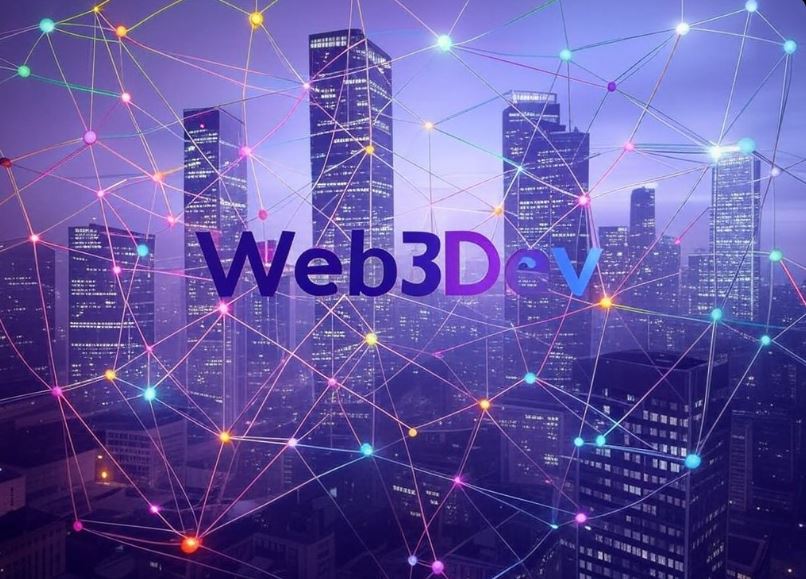
Exploring the Future of the Internet: The Rise of Web3
The internet as we know it is on the brink of a significant transformation with the advent of Web3. This third generation of internet technology isn’t just an upgrade; it’s a reimagination of how we interact, transact, and manage data in the digital world. Here, we dive into what Web3 is, its core principles, emerging trends, and why it’s becoming crucial for businesses, developers, and users alike.
What is Web3?
At its core, Web3 represents a vision for a decentralized internet, where power and control are distributed among its users rather than concentrated in the hands of a few tech giants. Unlike Web 2.0, which is largely characterized by centralized platforms like social media networks and e-commerce sites, Web3 leverages blockchain technology to offer:
- Decentralization: Reducing reliance on central authorities for hosting, managing, and securing data. This means no single entity can control or censor the internet experience.
- User Sovereignty: Allowing users to own their data, identity, and digital assets via blockchain technologies. This shift empowers individuals with privacy and control over their personal information.
- Interoperability: Enabling different applications to communicate and work together seamlessly. In Web3, an NFT from one platform could function across multiple ecosystems, enhancing user experience and application functionality.
Key Trends in Web3 for 2025
1. Tokenization of Real-World Assets (RWA): One of the most significant trends in Web3 is the tokenization of physical assets, from real estate to art, allowing for fractional ownership and increased liquidity. Imagine owning a piece of a skyscraper in Tokyo or a share in a Van Gogh painting through tokens that represent real-world value. This trend is poised to revolutionize traditional markets by bringing them onto blockchain platforms, making investments more accessible.
2. Integration of AI and Blockchain: The fusion of Artificial Intelligence (AI) with blockchain technologies in Web3 applications is set to enhance security, scalability, and data management. AI can analyze blockchain data for anomalies, improving trust and efficiency in decentralized systems. This combination could lead to smarter contracts that adapt to real-world conditions, better fraud detection, and personalized user experiences.
3. Decentralized Finance (DeFi): DeFi continues to grow, offering financial services like lending, borrowing, and trading without traditional financial intermediaries. The trend is towards more user-friendly DeFi solutions that could see widespread adoption by mainstream users. Imagine securing a loan or earning interest on savings through a decentralized app, without banks or credit checks.
4. NFT Evolution: Non-Fungible Tokens (NFTs) are evolving beyond mere digital art into utility-based tokens in gaming, real-world asset tracking, and more, making them a staple of Web3’s practical applications. For instance, NFTs could represent ownership of digital land in virtual worlds or tickets to exclusive events, with each token having unique, verifiable attributes.
5. Sustainability in Blockchain: There’s a push towards greener blockchain solutions with the adoption of energy-efficient consensus mechanisms like Proof-of-Stake, aiming to make Web3 environmentally sustainable. This shift is crucial as the energy consumption of traditional blockchain methods has been a point of contention.
Why Web3 Matters
- Security and Privacy: With decentralized data storage, there’s less risk of centralized data breaches, enhancing user privacy and security. Your data could be your own, not just stored but managed by you.
- Innovation in Business Models: Web3 opens up new avenues for businesses through decentralized apps (dApps), where community governance can lead to more dynamic and user-responsive platforms. Companies might find themselves with communities that have a stake in their success.
- Empowerment through Ownership: Users can own parts of the platforms they use through tokens, participating in governance and earning from the platform’s success. This model has been seen in DAOs (Decentralized Autonomous Organizations), where token holders make collective decisions.
Real-World Applications of Web3
- Identity Management: Blockchain-based identity systems could offer secure, user-controlled identities for everything from voting to accessing services.
- Supply Chain: Transparency in supply chains can be achieved through blockchain, ensuring product authenticity from raw materials to final sale.
- Healthcare: Secure, patient-controlled health data could be shared across providers without compromising privacy, improving care and research.
SEO Strategies for Web3 Marketing
For those looking to maximize visibility in the Web3 space:
- Keyword Optimization: Use phrases like “Web3 trends”, “Web3 technology”, “blockchain in Web3”, “NFTs in Web3”, and “decentralized finance” throughout your content. Include long-tail keywords for more precise targeting.
- Content Quality: Produce in-depth guides, analyses, and news on Web3 developments to establish authority. Regularly update content to reflect the fast-moving pace of this sector.
- Backlinks: Engage with communities and platforms in the blockchain and crypto space to gain quality backlinks. Write guest posts, participate in discussions, and share insights.
- Social Media Engagement: Leverage platforms like X to discuss Web3, where posts indicate a growing interest and understanding of these technologies. Use hashtags effectively to reach broader audiences.
Conclusion
As we move into 2025, Web3 isn’t just a buzzword; it’s rapidly becoming the blueprint for the next internet evolution. By understanding and adopting Web3 principles, businesses can position themselves at the forefront of this digital revolution, offering new levels of transparency, security, and user autonomy. For developers, entrepreneurs, and users, the era of Web3 promises an internet where the power dynamics are shifted back to the community, fostering a more equitable digital landscape.
Whether you’re a business looking to innovate, a developer aiming to build the next big dApp, or simply a curious internet user, diving into Web3 now could define your digital future. Stay informed, stay involved, and watch as the internet transforms into a more decentralized, user-centric realm.



